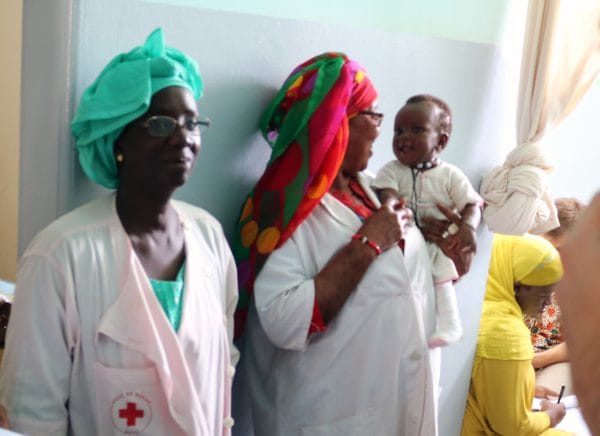This International Women’s Day, ideas42 stands with women around the world working to create positive health behavior change for themselves, their families and their communities. Volunteer health workers going door-to-door to promote antenatal care and family planning, midwives working around the clock to ensure safe childbirth, and new mothers bringing their children to immunization visits are some of the many unsung heroes to whom we tip our hats today. On a global scale, the financial value of women’s contributions to improving health exceed $3 trillion USD, though this doesn’t fully capture the multiplier effects and unquantifiable positive externalities to well-being.
While at times it might seem like many women are fighting an uphill battle with challenging policy environments and resource constraints, behavioral science can help build an effective, empowering context for pro-health behaviors. By first understanding the limitations of existing policy approaches to health, we can use behavioral science to unpack multifaceted, complex health behaviors and design useful new programs, policies, and services. As was discovered from the ineffectiveness of PEPFAR’s abstinence-only education to reduce risky sexual behaviors among youth, information is not always enough to change behavior.
Because using behavioral science as a problem-solving tool involves taking a closer look at drivers of behaviors, decision-making, and the contexts in which they occur, behavioral science can support women and communities working to improve health outcomes and overall well-being. Many of our projects at ideas42 are aimed at doing just that. Our work to reset dangerous misinformation about HIV risk among youth in South Africa showed that taking a different behavioral perspective to comprehensive sexuality education can shift perceptions. To support and positively impact the lives of women across the globe, we’re working toward solving complex problems such as intimate partner violence in Venezuela and Uganda. We’re also working with leaders in international health to empower more women to use family planning and reproductive health services in Senegal, Ethiopia, Nepal, Uganda, Burkina Faso, and Bangladesh, and supporting health workers who provide high-quality immunization services to mothers and their families. Together with women around the world, we see behavioral science as a crucial tool to positively impact the lives of millions by empowering them to make the best health decisions for themselves.



